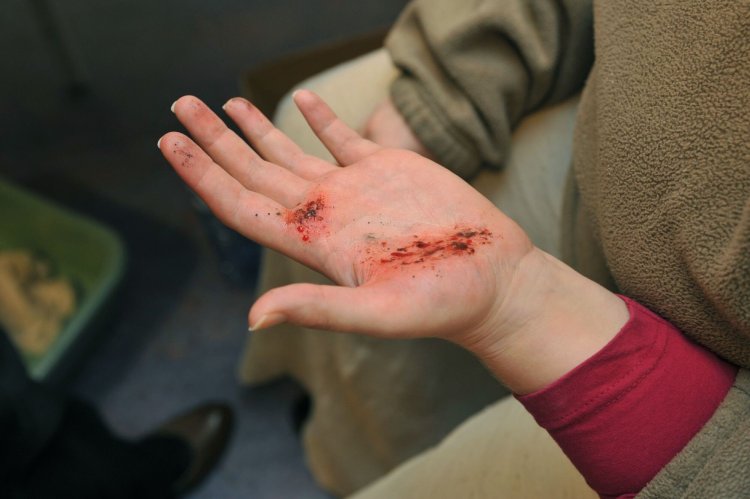New CEBaP research on the impact of simulated patients during first aid training available
18/05/22

In collaboration with the occupational first aid training service of Belgian Red Cross-Flanders, CEBaP has conducted a controlled study to investigate the impact of using simulated patients during a basic first aid training in laypeople on knowledge, skills and self-efficacy related to first aid. We measured these outcomes before, immediately after and one year after the training. Between September 2018 and August 2019, we were able to enrol 1113 participants, of which 403 were trained in presence of a simulated patient for the topics ‘first aid for burns’ and ‘first aid for stroke’. The 710 participants in the control group received a training without simulated patients, and instead watched video clips and case photographs.
In both groups, participants increased their knowledge, skills and self-efficacy, compared to baseline. We were unable to demonstrate an impact of the simulated patient immediately after the training. After one year, the knowledge and self-efficacy were lower than immediately after the training, but still significantly higher than at baseline. First aid knowledge after one year was significantly higher in the group that was trained in the presence of the simulated patient. This result suggests that a simulated patient may have a positive impact on retention of first aid knowledge. However, this results needs to be confirmed in an independent study, as only a minority of participants could be contacted one year after training.
The full results of this study are published in ‘Simulation in Healthcare’ and can be consulted here.
